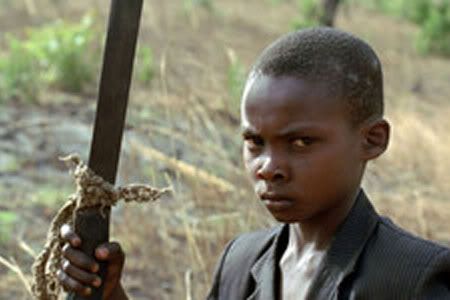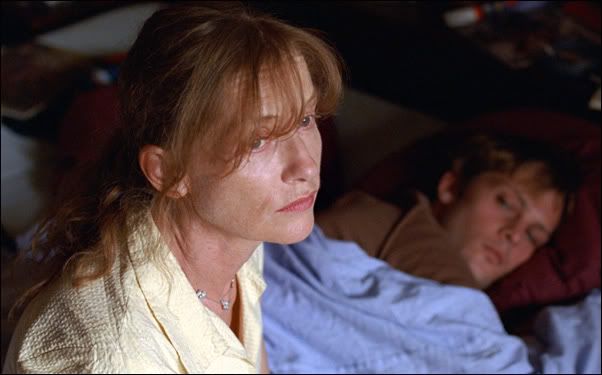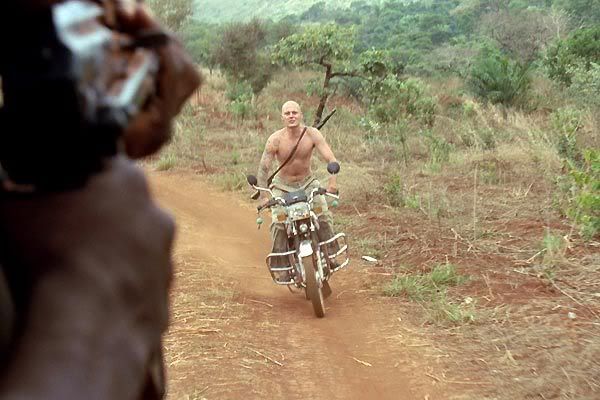The Subject Was Movies: White Material

White Material takes place in some nameless former French (or perhaps Belgian) African colony that gained its independence long ago but never lost some of its European colonists and their plantations or the robber baron exploitation mentality of those former colonists. Only the New Robber Barons are the upper class Africans who still consort with the remaining European now-natives who can be just as exploited as the lower class Africans. Africa is still the Land of Exploitation. It and its resources and people are there to be used by whoever can wield the political power like a chainsaw.
The African lower classes are in rebellion against their new bosses ("same as the old boss") and a Children's Crusade lead by a revolutionary called The Boxer is on the move taking land and plantations and then abandoning them for the next new toy. The African upper class has called out the militia to protect their property and interests. And the rest of the people are fleeing the middle ground between the two forces.
Chaos is descending in a gyre down on the land, and that chaos is even more intense than most could imagine. The Boxer has been grievously wounded and he is holing up in a plantation trying to heal or die. The Children's Crusade marches on, and we all know just how badly a Children's Crusade can turn out to be.
Isabelle Huppert's (Maria Vial) character's family owns the coffee plantation where The Boxer is recuperating or dying and is in the middle ground between the two African Forces. But Maria refuses to flee because the coffee harvest's time has come. She stubbornly, in the face of fleeing coffee workers and her family's lassitude and the invading Children's Army and the Upper Crust's Militia, decides that the coffee will be harvested.
Miss Huppert is very good at playing women who are strong and not particularly likable (she is sort of a French Bette Davis). As Maria, she has an indomitable will and focus that the viewer, at least at the beginning and through most of the movie, finds very compelling and admirable.
Maria's Father-in-Law is dying on his plantation. And the plantation is dying, Maria's ex-husband, her Father-in-Law's son, played by Christopher Lambert (and if that isn't an ironic comment on African colonialism, hello there, Tarzan!) has mortgaged the place to the local mayor and African Upper Crust Warlord. Whatever is harvested will not pay him off. The plantation is as lost as the Children's Crusade who wander onto it in retreat from the Militia.

And Maria's teen-aged son is in a fugue state of clinical depression. He can't get his butt out of bed to do anything either helpful or hindering until a few members of the Children's Crusade invade his bathroom and kitchen and he finally rises to chase after them. When he catches them, the children strip him naked and take off. But Maria's son has finally found some motivation. He decides to join the Children's Crusade. And we all know how that is going to turn out.

As I said earlier, at first I admired Maria for her will power and her insistence on following nature's lead and harvesting her coffee. But by the end of the movie, I realized that Maria was fey and crazier than the chaos and killings and political forces surrounding her.